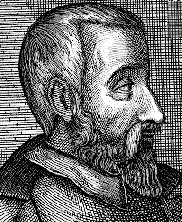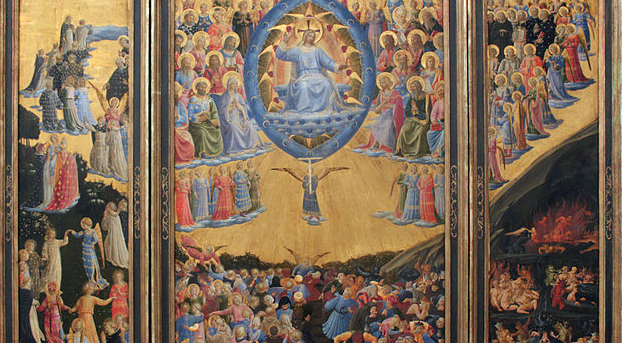 No, not the character from the Colombian coffee ads; Juan de Valdés (c. 1509-1541), the 16th-century Spanish-born religious writer who worked in Italy.
No, not the character from the Colombian coffee ads; Juan de Valdés (c. 1509-1541), the 16th-century Spanish-born religious writer who worked in Italy.
According to the Christian History Institute, Valdés published this little book on January 14, 1529, at age 18. You can see a few sample pages of it here.
Valdés was part of a revival or reformation movement in the most Catholic regions of sixteenth-century Europe. This movement didn’t take off into full-fledged reformation, though reading Valdés today, it’s easy to see why his works were suppressed by the inquisition, and why he had to be very careful moving around in Spain and Italy. Valdés is now a mostly forgotten figure, but his influence carried on in the English-speaking world through people like Peter Martyr Vermigli and George Herbert (who refers to Valdés as Valdesso).
And now to change the subject rather abruptly, here is an extended allegory from Valdés’ greatest work (not the one published on this date, just an excuse to provide this excerpt), the Hundred and Ten Considerations. This is from Consideration number 13.
The vassals of a great King rebelled against Him. For the revolt He condemned them to death, confiscated their estates, and banished them from His kingdom. Condemned, despoiled, and expatriated, they entered into the service of foreign kings, the enemies of their natural liege Lord.
The King, as He was benignly disposed towards His vassals, deferred for a while to act against them ; and because He was desirous that they, who were wanderers in exile, should return to His kingdom, first executed the rigour of His justice upon His own Son, and then sent an universal proclamation throughout the world, in which He declared that His justice was already satisfied, and that He had already pardoned all who had rebelled against Him, encouraging them to return to His kingdom, and promising them the entire restitution of what they had lost.
The persons who were criminally involved in this rebellion heard this proclamation ; some of them, pretending that they were not involved in it, rejected the amnesty ; for it seemed to them that its acceptance was a confession that they had been rebels. Others, although they knew themselves to be rebels, would not give credit to the proclamation ; it appeared to them too strange a thing that the King should pardon them on account of His Son’s obedience to Him. Similarly, some others, though they knew themselves to be rebels, “though they held the proclamation to be genuine,”
though they took a copy of it, and even themselves published it, yet dared not return to the kingdom, but sought, on the contrary, in every possible way, to obtain pardon from the King by services, gifts, and presents, being unwilling to avail themselves in any manner of the King’s generosity, or of His Son’s obedience; and as they never came back to the kingdom, their property was never restored to them. Thus, neither of these classes availed themselves of the general pardon; so that, as far as they were concerned, it was just as if it had never been offered.There were some who, knowing themselves to be rebels, and giving full faith and credit to the proclamation, trusting to the King’s word, accepted the general pardon, and returned to the kingdom, submitting themselves in all and everything to their King’s government. And although they might at first have somewhat doubted as to the pardon, and so much the more because they saw that that property of which they had been deprived was not all at once restored to them, yet, continuing to reside in the kingdom, and seeing that the King treated them kindly, and that He gradually restored to them what they had forfeited by the rebellion, they likewise persevered in testifying that they had been pardoned, and had heartily to congratulate themselves that they had returned to the service of their own King, and to remain under His rule and government.
And because they had experienced the evils incident to rebellion and exile, they terminated and renounced all their friendly relations and associations with other men, as also all their own peculiar designs, which, as they thought, might induce them to rebel again. Occupying and exercising themselves in doing this, they gradually acquired such credit with the King, that He not only restored them all they had lost through rebellion, but made them valuable presents, and treated them as if they never had been rebels.
Valdés goes on to give an equally long interpretation of the allegory, in case you missed the point.
There are 110 of these considerations, and Valdés is a quirky, unpredictable, stimulating writer. If you’re going to dip into the considerations, don’t miss these: #s 19, 23, 32, 46, 51, 72, 80, 84, 87, 95, 97, and 100.
tomorrow, January 15: Martin Luther King, Jr.
